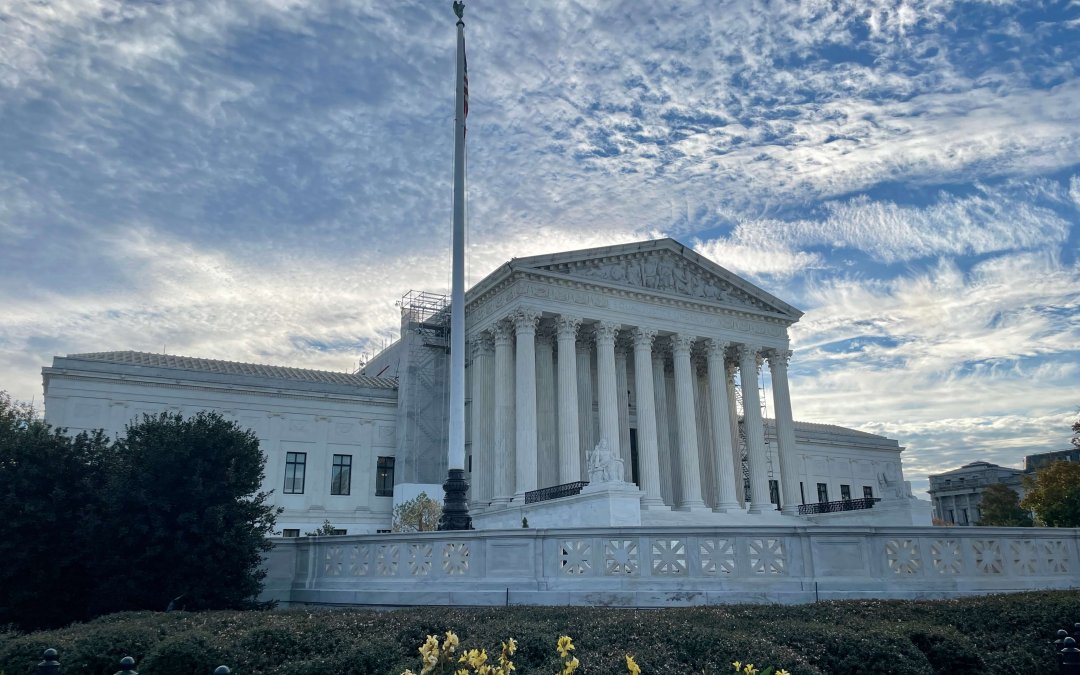WASHINGTON – The Supreme Court on Tuesday heard oral arguments in a case that could define how government officials can use social media.
The case, O’Connor-Ratcliff v. Garnier, revolves around the question of whether public officials were acting in their official capacity after they blocked critics from making comments on their Facebook and Twitter accounts, thus violating the public’s free speech and government-petitioning rights protected under the First Amendment.
The case originated when Christopher and Kimberly Garnier, parents of three children in the Poway, school district in San Diego sued two school board members, Michelle O’Connor-Ratcliff and T.J. Zane, after they had blocked them on social media for posting repeated criticisms. The parents’ comments complained about allegations of financial mismanagement and incidents of racism in the school district.
The Garniers alleged that by blocking them on social media, the school board members engaged in “state action” that violated the parents’ First Amendment rights to communicate with and petition the officials. Both a federal district court and the U.S. Court of Appeals for the Ninth Circuit ruled in favor of the Garniers.
The school board members appealed to the Supreme Court, which heard oral arguments on Tuesday. The attorney for the board members argued that in another case, Lindke v. Freed, the lower court reached a different conclusion. In that case, the U.S. Court of Appeals for the Sixth Circuit ruled that James Freed, the city manager of Port Huron, Mich., did not violate the First Amendment by blocking Kevin Lindke, a city resident, after he posted critical comments on Freed’s Facebook page. The appellate court said that managing that social media account was not part of Freed’s official duties. In April, the Supreme Court agreed to hear both cases.
For almost two hours on Tuesday, the justices posted a wide variety of hypotheticals to attorneys from both parties and the Office of the Solicitor General, which filed an amicus brief supporting the school board members.
Hashim Mooppan, the attorney for the school board members, argued that the Supreme Court should adopt the “authority or duty” test the federal circuit court applied in Lindke v. Freed. The test holds that if a public official did not use social media to further their official duty and did not use government staff or resources, then the activity is not considered “state action.”
For example, officials posting information on social media related to their duties, like issuing new regulations, should not qualify as state action unless the information is not available anywhere else, Mooppan said.
Because the school board members created their social media accounts for their campaigns and operated them personally, the actions they’ve taken – including deleting the comments from the Garniers and eventually blocking them – do not constitute state action, he argued.
Justice Ketanji Brown Jackson asked whether the officials should be required to post a disclaimer if their account is for private use.
But Mooppan said such a requirement will lead to officials censoring themselves on social media, and if the requirement comes from the government, it will infringe on the First Amendment of the officials themselves.
Pamela Karlan, the attorney for the Garniers, however, said the focus of the case is not to challenge the public officials’ speech but whether their social media use constitutes state action.
If the court were to adopt the authority or duty test, Karlan said the definition of duty needs to be significantly expanded to include not just state and local laws but also organization bylaws, handbooks and other long-standing customs.
She said the school board members frequently relay information related to their official duties to their constituents on social media, including posts about visiting classrooms during instruction, which a private citizen has no authority to do.
Unlike a government official “pushing the shopping cart down the aisle” in a grocery store and stopping to speak to a resident, the school board members created social media accounts as an “ongoing site” to disseminate information and received feedback from constituents. That qualifies their activities as state action, Karlan said.
Justice Elena Kagan acknowledged the complexity of the case. The court’s decision, she said, will need to balance First Amendment interests on both sides.
“Just as there may be First Amendment interests in protecting the private speech of government employees, there are also First Amendment interests in enabling citizens to access the important parts of their government,” Kagan said.
This is not the first case before the Supreme Court involving government officials blocking critics on social media. In 2017, the Knight First Amendment Institute filed a lawsuit against then-President Donald J. Trump and his aides after they blocked seven individuals who criticized the administration.
The lower courts ruled in favor of the Knight Institute. However, in 2021, the Supreme Court intervened and dismissed the case, arguing that it was moot since Trump was no longer the president. Justice Clarence Thomas, in his opinion, noted that this case “highlights the principal legal difficulty” of “applying old doctrines to new digital platforms.”
David Greene, an attorney at the digital rights group Electronic Frontier Foundation, said in an interview before the oral arguments that he does not see significant factual differences between the two cases heard on Tuesday and expects the Supreme Court to set one set of standards for both cases.
EFF filed an amicus brief in support of the Garniers and Lindke. Greene said that government officials have created a public forum by engaging with their constituents on social media, whether their accounts are labeled as official or personal. Deleting comments from certain constituents or blocking them, he contended, violated their First Amendment rights to participate in the forum.
Garnier is one of five cases the Supreme Court will hear this term related to social media. The court is expected to rule next summer on the constitutionality of Texas and Florida laws that regulate the extent to which social media companies can control content on their platforms. Additionally, it will address the legal dispute between Republican state attorneys general and the Biden administration over the federal government’s role in content moderation.
“This really gives the court an opportunity to define what is the government’s role with respect to social media both as a regulator and as a user, and that’s going to be highly important,” Greene said.



